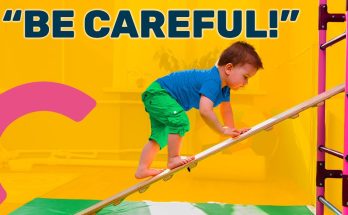Getting a baby to sleep well is one of the biggest challenges for parents. Many struggle with frequent night wakings, short naps, and bedtime battles, often feeling exhausted and frustrated. While every baby is different, there are some common mistakes that can unknowingly disrupt their sleep. By avoiding these pitfalls, you can help your baby develop healthy sleep habits, leading to longer and more restful nights for both of you. Here are three common mistakes that can ruin your baby’s sleep—and how to fix them.
Mistake #1: Ignoring Sleep Cues and Keeping Baby Awake Too Long
One of the biggest mistakes parents make is keeping their baby awake for too long. Many assume that keeping a baby up longer will make them more tired and help them sleep better, but this often backfires.
Why It’s a Problem
Babies have specific wake windows, which are the ideal amounts of time they can stay awake before becoming overtired. When a baby is kept awake past this window, their body releases stress hormones like cortisol and adrenaline, making it harder for them to fall asleep and stay asleep. This can lead to:
- Frequent night wakings
- Short, inconsistent naps
- Increased fussiness and crying
How to Fix It
✅ Learn Your Baby’s Sleep Cues – Babies give signals when they’re getting sleepy, such as rubbing their eyes, yawning, looking away, or getting fussy. Putting them down at the first signs of tiredness helps prevent overtiredness.
✅ Follow Age-Appropriate Wake Windows – The right wake window varies by age. For example:
- Newborns (0-3 months): 45-90 minutes
- 3-6 months: 1.5-2.5 hours
- 6-12 months: 2.5-4 hours
✅ Create a Calm Pre-Sleep Routine – A predictable, calming bedtime routine signals to your baby that it’s time to sleep. This can include dimming the lights, reading a short book, gentle rocking, or white noise.
🚫 Don’t wait until your baby is overly fussy or crying to put them down! This usually means they’ve been awake too long and will have a harder time settling.
Mistake #2: Relying Too Much on Sleep Props
Many parents unknowingly create sleep associations that make it difficult for their baby to sleep independently.
What Are Sleep Props?
Sleep props are things a baby relies on to fall asleep, such as:
- Rocking to sleep
- Nursing or bottle-feeding to sleep
- Holding or patting until they are fully asleep
Why It’s a Problem
While these methods may work in the short term, they can create a dependency. If a baby always falls asleep being rocked or fed, they may struggle to fall back asleep on their own when they wake up at night. This can lead to frequent night wakings and a cycle of needing help to get back to sleep.
How to Fix It
✅ Encourage Self-Soothing – Allow your baby to practice falling asleep in their crib while drowsy but awake. This helps them learn to settle themselves when they wake at night.
✅ Use a Consistent Bedtime Routine – Establish comforting cues like a bedtime song, a lovey (for babies over 12 months), or gentle back rubs to help them relax without creating a sleep dependency.
✅ Reduce Sleep Props Gradually – If your baby is used to being rocked or fed to sleep, slowly transition away from these habits by reducing how long you rock or feed before putting them down.
🚫 Don’t expect your baby to instantly self-soothe overnight! Learning to sleep independently takes time and consistency.
Mistake #3: Not Creating the Right Sleep Environment
A baby’s sleep environment plays a huge role in how well they sleep. Even small changes can make a big difference in sleep quality.
Common Sleep Disruptors
- Too much light – Even a small amount of light can interfere with melatonin production, making it harder for your baby to fall and stay asleep.
- Noisy environment – Sudden or loud noises can easily wake a sleeping baby.
- Room temperature issues – A room that is too hot or too cold can cause discomfort and disrupt sleep.
How to Fix It
✅ Keep the Room Dark – Use blackout curtains to block out sunlight and create a dark sleep environment. If a nightlight is needed, choose a dim, red-toned light instead of bright white or blue lights.
✅ Use White Noise – A sound machine with steady white noise can help drown out background sounds and create a soothing sleep environment.
✅ Maintain a Comfortable Temperature – The ideal sleep temperature for babies is around 68-72°F (20-22°C). Dress your baby in breathable sleepwear and use a sleep sack instead of loose blankets for safety.
🚫 Don’t let your baby sleep with bright lights or a noisy room! Even small disturbances can cause fragmented sleep.
Final Thoughts
Helping your baby sleep well doesn’t have to be a mystery. By avoiding these three common mistakes—keeping them awake too long, relying on sleep props, and not creating the right sleep environment—you can set your baby up for restful nights and peaceful naps.
Key Takeaways:
✔ Follow age-appropriate wake windows to prevent overtiredness.
✔ Encourage self-soothing and avoid sleep dependencies.
✔ Make the sleep environment dark, quiet, and comfortable.
With patience and consistency, your baby can develop healthy sleep habits, leading to better rest for both of you!



